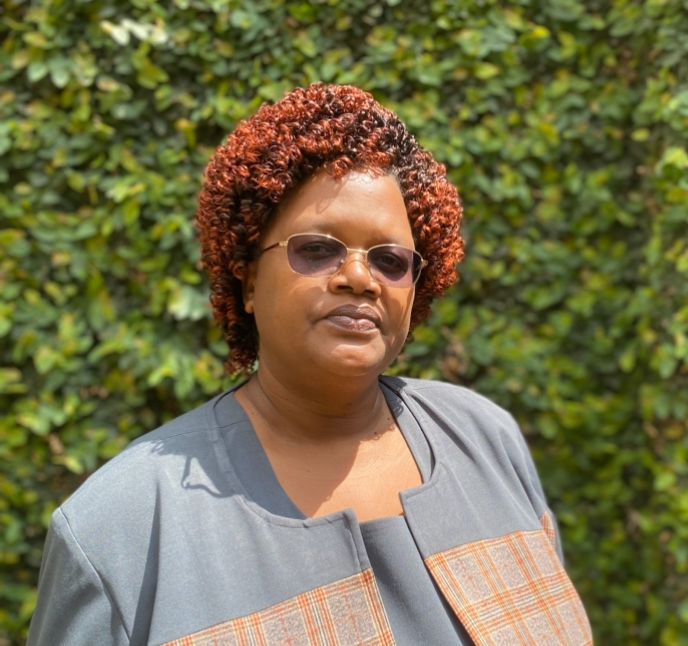Entry Requirements for Diploma In Monitoring And Evaluation
C-
Duration: 12 Months
Delivery Method: Online
Fee Structure for Diploma In Monitoring And Evaluation
| Full Course Fees | |
|---|---|
| Registration Fee | KES 1,000.00 ($ 10.00) |
| Certification Fee | KES 0.00 ($ 0.00) |
| Administration Fee | KES 5,000.00 ($ 50.00) |
| Internal Exam Fee | KES 15,000.00 ($ 150.00) |
| External Exam Fee | KES 0.00 ($ 0.00) |
| Examining Body Membership Fee * | KES 0.00 ($ 0.00) |
| Tuition Fee | KES 108,000.00 ($ 1,080.00) |
| Fees Totals | KES 129,000.00 ($ 1,290.00) |
| * Examining Body Membership Fee may be payable through us or directly to the Examining Body | |
All Fees are payable in lumpusm or in installments, for details see below.
Breakdown per semester,
| Trimester | Total Per Trimester |
|---|---|
| Trimester 1 | KES 43,000.00 ($ 430.00) |
| Trimester 2 | KES 43,000.00 ($ 430.00) |
| Trimester 3 | KES 43,000.00 ($ 430.00) |
| Total | KES 129,000.00 ($ 1,290.00) |
NB: Fees are payable in 3 installments as detailed below:
The trimester fees of KES 43,000.00 ($ 430.00) is payable in 3 installments of KES 14,333.33 ($ 143.33)
Course Requirements for Diploma In Monitoring And Evaluation
- All Fees are payable in installements, for details check FAQs.
- Digital (downloadable) certificates are available. Printing and shipping of hardcopy certificate can be done at a cost of KES 2,000 ($ 20).
Practical Requirements for Diploma In Monitoring And Evaluation (where applicable)
The cost of practicals, internships or industrial requirements is KES 30,000 ($ 300) and only applies to courses that require practicals.
Course Units/Overview for Diploma In Monitoring And Evaluation
Module I
1.DIMAE001 :Project Planning & Management
2.DIMAE002 :Monitoring And Evaluation Design And Implementation
3.DIMAE003 :Participatory M&E
4. DIMAE004 :Results Based M&E
5.DIMAE005 :Project Management Governance And Accountability
6.DIMAE006 :Impact Assessment And Evaluation
Module II
7. DIMAE007: Social Research Methods
8.DIMAE008: Advocacy And Lobbying In Monitoring And Evaluation
9.DIMAE009: Proposal Writing
10.DIMAE010: Basic Statistics
11.DIMAE011: Gender In M&E
12.DIMAE012: Ethics In M&E
Module III
13.DIMAE013: Emerging Issues In M&E
14.DIMAE014: M&E Data Analysis
15.DIMAE015: M&E Report Writing And Presentation
16.DIMAE016: SDG&M&E
17.DIMAE017: Statistics Basic
18.DIMAE018: M&E Research Project
| Unit ID | Unit Name |
|---|---|
| DIMAE001 | Project Planning & Management |
| DIMAE002 | Monitoring And Evaluation Design And Implementation |
| DIMAE003 | Participatory M&E |
| DIMAE004 | Results Based M&E |
| DIMAE005 | Project Management Governance And Accountability |
| DIMAE006 | Impact Assessment And Evaluation |
| DIMAE007 | Social Research Methods |
| DIMAE008 | Advocacy And Lobbying In Monitoring And Evaluation |
| DIMAE009 | Proposal Writing |
| DIMAE010 | Basic Statistics |
| DIMAE011 | Gender In M&E |
| DIMAE012 | Ethics In M&E |
| DIMAE013 | Emerging Issues In M&E |
| DIMAE014 | M&E Data Analysis |
| DIMAE015 | M&E Report Writing And Presentation |
| DIMAE016 | SDG&M&E |
| DIMAE017 | Statistics Basic |
| DIMAE018 | M&E Research Project |
Course Description for Diploma In Monitoring And Evaluation
Diploma in Monitoring and Evaluation
Course overview;
The Diploma in Monitoring and Evaluation is a comprehensive course designed to equip students with the knowledge and skills required to effectively monitor and evaluate programs, projects and policies across various sectors. This course provides a solid foundation in key concepts, methodologies, and tools essential for conducting systematic assessments, performance monitoring and impact evaluations. Students will learn how to design and implement monitoring and evaluation frameworks, collect and analyze data, develop performance indicators, and communicate evaluation findings to stakeholders.
By the end of the course, students will have the expertise to play a crucial role in monitoring and evaluating the effectiveness and efficiency of development interventions, contributing to improved outcomes and informed policy decisions.
Minimum Entry Requirement.
Grade C-
Mode of Delivery
Home and/or office-based media employing a variety of self-instructional electronic and online self-study materials, such as; written self-instructional study modules, online interactive devices and self-tests, cloud-based content, videos of lectures mediated technical learning materials e.g., audiovisual and e-learning materials
Program Objectives
By the end of this program, learners should be able to;
-
Understand the fundamental concepts and principles of monitoring and evaluation (M&E) in various context
-
Gain proficiency in designing and implementing M&E frameworks and systems for development programs and projects
-
Develop skills in collecting, analyzing, and interpreting data to assess the effectiveness and impact of development interventions
-
Acquire knowledge of different M&E tools and techniques, including qualitative and quantitative methods, for data collection and analysis
-
Learn how to effectively communicate M&E findings and recommendations to stakeholders through comprehensive reports and presentations
-
Explore ethical considerations and best practices in M&E, ensuring the protection of human subjects and the responsible use of data
-
Develop the ability to identify and address challenges and limitations in M&E processes, such as data quality issues and evaluation biases
-
Gain practical experience through hands-on exercises, case studies, and real-world projects to apply M&E concepts and tools in practical settings
Skills gained
- Skills to develop comprehensive monitoring and evaluation plans
- Proficiency in collecting, analyzing and interpreting data for effective evaluation
- Design and implement evaluations using appropriate methodologies
- Skills in presenting evaluation findings through visualizations and reports
- Effective stakeholder engagement and communication skills are fostered to ensure collaboration and understanding
- Manage data quality and adhere to ethical standards in monitoring and evaluation
- Problem-solving and decision-making skills are honed to address challenges in monitoring and evaluation processes
Career opportunities
- Data Analyst
- Research Analyst
- Policy Analyst
- Project Coordinator/Manager
- Evaluation Consultant
- Program Coordinator
- Monitoring and Evaluation Officer
Reasons as to why you should study this course
- Enhances employability and opens up diverse career opportunities
- You can have positive social impact and improves program outcomes
- You’ll gain transferable skills
- Contributes to personal and professional growth
- It is a good way of exposure
Tags
Diploma in Monitoring and Evaluation ,Monitoring and Evaluation , Monitoring and Evaluation certificate Course, best online courses in Kenya, Finstock Evarsity college, Online courses, accredited online courses, online course with downloadable certificates, freemium courses, short courses, professional development courses, Certificate in International Relations and Diplomacy, Diploma and Certificate Courses, Marketable online courses, affordable online courses, short online courses with certificate in Kenya, free short online courses with certificate in Kenya, free online courses in Kenya , online certificate courses in Kenya
Course Instructor(s) for Diploma In Monitoring And Evaluation
 PAULA KALUU WAMBUA
PAULA KALUU WAMBUA
 DOUGLAS MWANGI MAINA
DOUGLAS MWANGI MAINA
 MOSES RAPHAEL OGOLA
MOSES RAPHAEL OGOLA
 SOSTEN BARACK OCHIENG
SOSTEN BARACK OCHIENG
 NICODEMUS M. KITUKUTHA
NICODEMUS M. KITUKUTHA
 JAMES MBURU KIMANI
JAMES MBURU KIMANI
 SIMON MUTUKU MULUNGYE
SIMON MUTUKU MULUNGYE
 RHODAH MUTENDE
RHODAH MUTENDE
 SHELDON TITUS
SHELDON TITUS
Examining Body for Diploma In Monitoring And Evaluation
FINSTOCK EVARSITY COLLEGE
FAQs for Diploma In Monitoring And Evaluation
Q1. How many intakes are there?
There are three intakes in a year as follows:
|
Cohort |
Name |
Term Period |
Months |
Registration Window |
|
January Intake |
Trimester 1 |
Jan 1 — Apr 30 |
4 |
Anytime |
|
May Intake |
Trimester 2 |
May 1 — Aug 31 |
4 |
Anytime |
|
September Intake |
Trimester 3 |
Sep 1 — Dec 31 |
4 |
Anytime |
Q2. In how many installments can I pay the fees?
Payments can be done in 3 installments as specified in the fee structure.
Q3. When can I sit for the exams?
- Internal exams are activated for students individually.
- External exams (where applicable) are booked one month after you complete the course.
Refer to the external examining body for more details and requirements before seating for their exams.
Q4: Is this college accredited/approved?
Yes. The college is approved under the ministry of education, through TVETA, and also through National Industrial Training Authority (NITA).
Course Reviews for Diploma In Monitoring And Evaluation
Top Rated Reviews
![]()
STEPHANIE CHESIRO KIDULLAH from Kenya
0 0
As a continuing student in the Diploma in Monitoring and Evaluation, I’ve found the coursework very relevant to real-life project management. The support from tutors has been outstanding, and I appreciate how the course prepares me for professional monitoring and evaluation roles.
![]()
KHAMISI LUSULI from Kenya
0 0
I’ve just joined the Diploma in Monitoring and Evaluation at Finstock Evarsity College, and I’m thrilled by how detailed and practical the modules are. The flexible learning schedule allows me to keep up with my job while advancing my professional skills.

MAGHEMA STELLAH from Kenya
0 0
This is the best place to be!! Fabolous course and Fabolous tutors!! Long live Finstock evarsity. Am so happy to be part of this faculty. Thank you Finstock.












